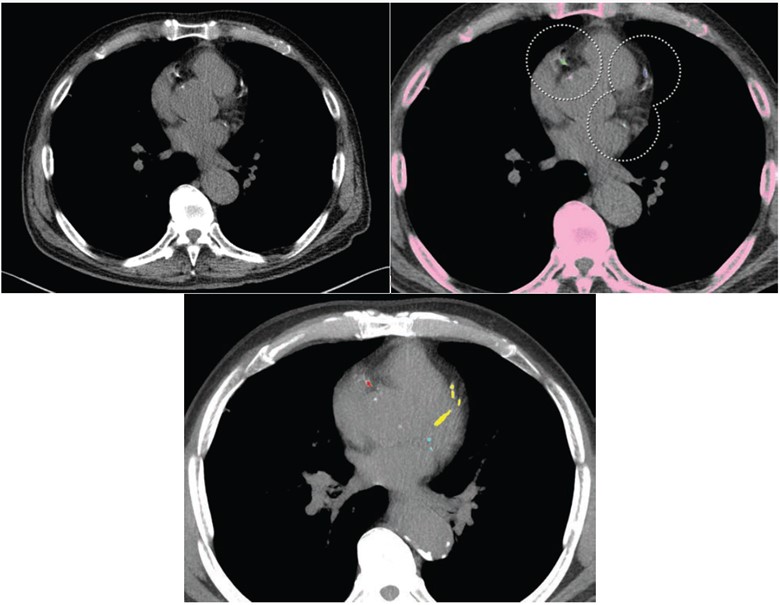Study Assesses Coronary Artery Calcification During Low-Dose Lung Cancer Screening
Images

A study published in the American Journal of Roentgenology (AJR) provides reference data for health care practitioners engaged in developing and overseeing national lung cancer screening programs—highlighting the importance of routine coronary artery calcification (CAC) evaluation.
“For Korea’s national lung cancer screening program, major adverse cardiovascular event (MACE) occurrence increased significantly with increasing CAC severity, whether assessed by visual analysis or AI software,” clarified Won Gi Jeong, MD, PhD, from Chonnam National University, Hwasun Hospital in South Korea. Dr. Jeong also acknowledged this study was “limited by the large sex imbalance for Korea’s national lung cancer screening program.”
Jeong et al. included 1,002 patients (mean age, 62.4 years; 994 men, 8 women) who underwent low-dose CT (LDCT) at two Korean medical centers during a national lung cancer screening program (April 2017–May 2023). Two radiologists independently assessed CAC presence and severity via visual analysis, consulting a third radiologist for resolution. Two AI software applications were also used to assess CAC presence and severity, while MACE occurrences were identified by EMR review.
Ultimately, prevalence on LDCT was 53.4 for visual analysis, and 56.6% and 60.1% for two AI software applications. The incidence of MACE was significantly associated with increasing CAC severity, as assessed by visual analysis and both AI applications (all p <.001).